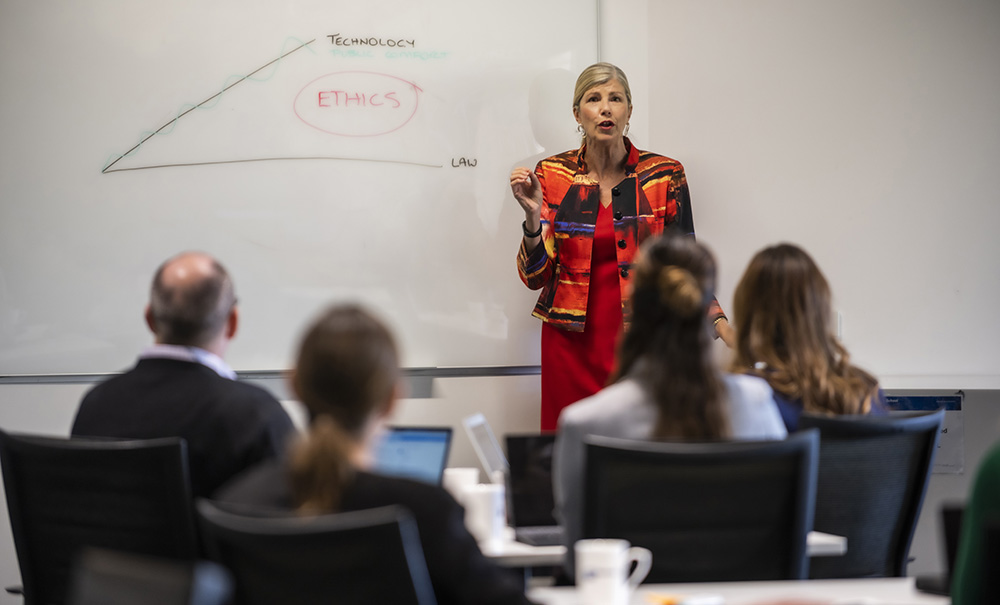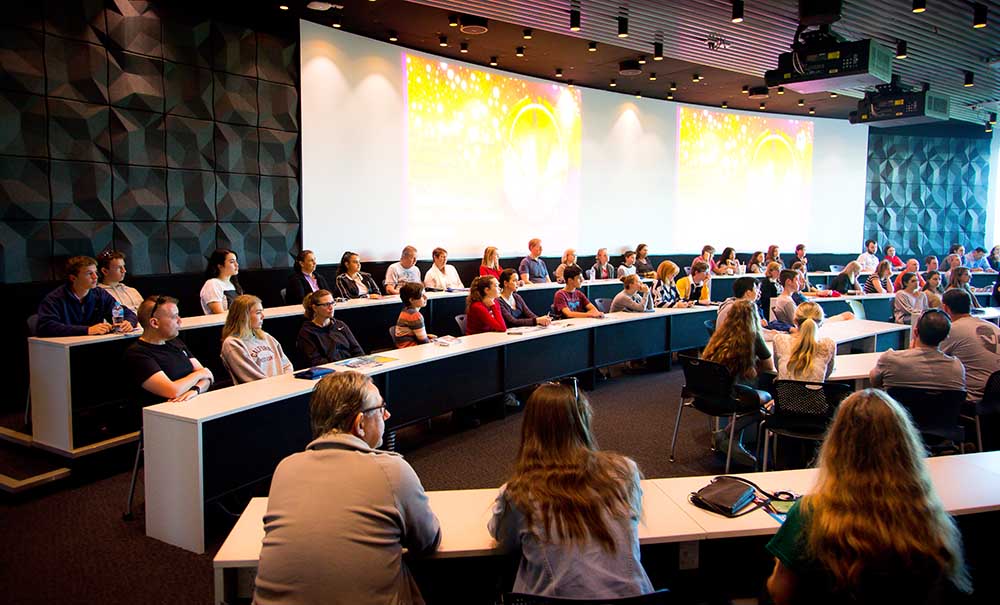
Adam Battams, 10 April, 2024
Technology is changing the way we work. Within healthcare it's opening up new possibilities for delivering services. Digital health professionals like Adam Battams are on the forefront, using their expertise to connect remote patients to specialist healthcare providers.
Read about:
What does a digital health professional do?
As a telehealth coordinator I play a pivotal role in ensuring that our patients are supported in their consultations. Mater’s telehealth service is delivered across the entire state of Queensland and to parts of New South Wales. This service enables us to care for a wider scope of patients and reduces burdens such as travel time and costs.

I think the most enjoyable part of my job is using my passion for digital health to assist disadvantaged communities in accessing specialist healthcare. Seeing the relief on a patient’s face who lives hours away from our hospital after we’ve set up their device and connected them to their call is incredibly rewarding.
I am also a member of Mater Health’s Digital Health Clinical Advisory Group (DHCAG) for Ambulatory Care and Community Health. This multidisciplinary group of health professionals meets every two-months to provide advice and guidance on how to align the priorities of both Mater Health and our digital technology team through innovation.
We discuss and provide advice on workflow, policy and procedure including direction on clinical workflow design and implementation risks within specialties. I think my favourite part about being involved in the DHCAG is that its members aren’t all formally of digital health and technology backgrounds. We value diverse viewpoints and discussion from everyone no matter where they are at in their digital health journey.
How did you become a digital health professional?
My academic background is in public health and I also have a strong interest in technology and digital health, so I was keen to find a role that combined the two.

After studying the Bachelor of Public Health and developing an interest in community health and population health, I kickstarted my career as a health professional in the private sector working for an occupational health services and workplace rehabilitation company. This company had a big focus on leveraging digital technology to help their clients and streamline internal processes for their people.
During the COVID-19 pandemic digital technology became paramount to upholding all aspects of life and in maintaining a ‘new-normal’. Through this I developed a deeper appreciation for digital health. My decision to study the Graduate Certificate of Digital Health Leadership and Management was the culmination of these events and milestones.
What is it about digital health that interests you most?
I think what most interested me in this area was not so much the technological aspect of digital innovation, but the change management and implementation aspect of it. Identifying a suitable solution or innovation for a healthcare issue is certainly one piece of the puzzle, however, seldom will a ‘copy and paste’ implementation effort yield optimal outcomes. Understanding context of change and change management principles was something I was really eager to learn more about.
What’s it like studying digital health at QUT?
I found the course to be an in-depth introduction to digital health leadership and management for anyone wanting to kickstart their digital health professional journey, or even upskill their management and leadership capabilities in their existing digital health role.
The graduate certificate covers a variety of topics and incorporates presentations from QUT staff and external guest speakers from a range of professions within the health industry. I also completed this course within quite a small cohort and I found that classes were delivered with this in mind.

A significant advantage of completing postgraduate study is that your cohort will likely consist of professionals from your own discipline and from parallel industries. This leads to invaluable class discussions. Your own beliefs, ideas, and assumptions on real-world issues will be challenged by your peers. This opens you up to opportunities or ideas you may not have considered previously.

What supports were there to help you in your studies?
The Graduate Certificate in Digital Health Leadership and Management offers a generous DHCRC Digital Health scholarship to support successful applicants in their post-graduate study. I was fortunate and incredibly grateful to have been awarded this scholarship for my 2023 study, which covered 50% of my tuition fees for the course.
What are the flexible study options like?
I found my postgraduate study experience to be incredibly flexible, with blended learning opportunities in both on-campus and online settings. Every course in the graduate certificate incorporated elements of self-paced online learning modules and in-person or online sessions with course coordinators. I personally found the online modules to be engaging and much more convenient to learn from as opposed to traditional fixed weekly lecture presentations.
What experiences did you have at QUT?
The staff provided ample resources for learning well beyond the structured course syllabus. For example, students enrolled in the Graduate Certificate in Digital Health Leadership and Management were invited to attend a four-day workshop traditionally offered to students completing the unit Leadership in Health Management.

Each day of the workshop had an incredibly diverse list of industry guest speakers who each spoke on a topic relevant to leadership and management in the healthcare context. These presentations deepened my understanding of what it is to be an effective leader in health. They also broadened my perspective on the types of leaders that exist and the different contexts in which they are required to lead. This is just one example of many opportunities I experienced that had a significant impact on my learning.
What advice would you give to someone studying digital health at QUT?
Understand what the study you are pursuing has to offer you and do everything you can to get the most out of it! Apply for scholarships, attend workshops, ask questions. A little initiative can go a long, long way.
